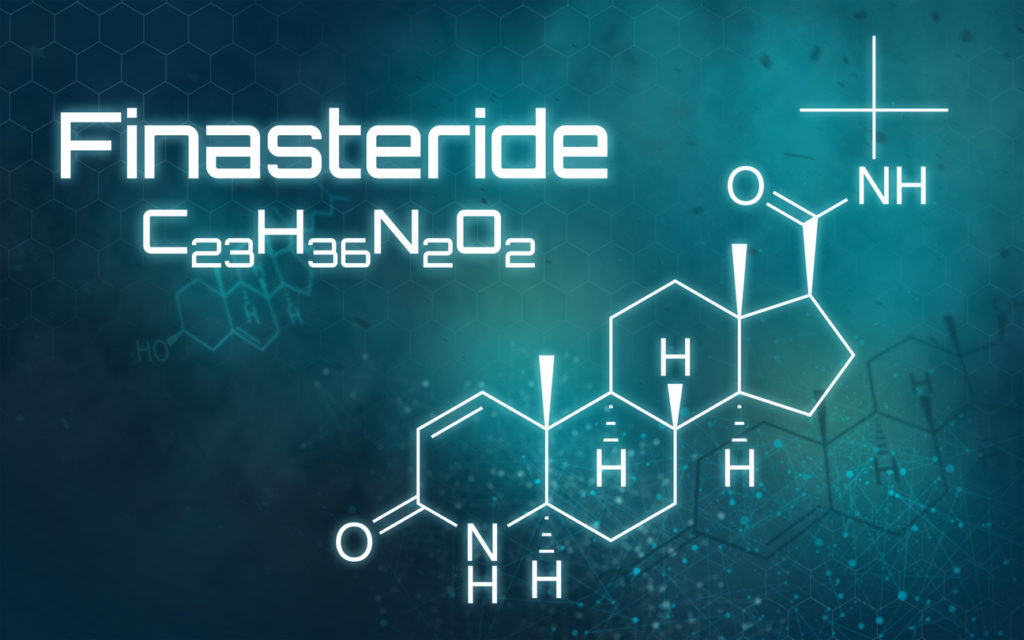Compounding Pharmacies — Are Users of Finasteride for Hair Loss in Danger?
What Are They?
Sometimes the needs of a patient are so unique that prescription medications readily available at retail drug stores are not sufficient to combat the illness or treat the condition. An example of such a situation is an infant who needs a liquid form of a medication that comes in tablet form only. Another is an adult who is allergic to one of the ingredients in an antibiotic.
Enter the compounding pharmacy.
“Compounding is the creation of a pharmaceutical preparation – a drug – by a licensed pharmacist to meet the unique needs of an individual patient (either human or animal) when a commercially available drug does not meet those needs,” states an article on the American Pharmacists Association’s Web site titled “Frequently Asked Questions About Pharmaceutical Compounding.” “A patient may not be able to tolerate the commercially available drug, the exact preparation needed may not be commercially available, or a patient may require a drug that is currently in shortage or discontinued. The U.S. Pharmacopeia Convention (USP) formally defines compounding as “the preparation, mixing, assembling, altering, packaging, and labeling of a drug, drug-delivery device, or device in accordance with a licensed practitioner’s prescription, medication order, or initiative based on the practitioner / patient / pharmacist / compounder relationship in the course of professional practice.”
Compounding pharmacies are able to add flavors to drugs so they are more palatable to children and can make drugs that ordinarily are taken orally into creams or gels for the elderly who have trouble swallowing. It is a necessary and profitable business.
“Of the approximately 56,000 community-based pharmacies in the United States, about 7,500 pharmacies specialize in compounding services,” the article states. “This means the pharmacists in those facilities spend most or all of their time compounding special preparations for patients. Preparations made in these pharmacies are more likely to include both sterile and nonsterile dosage forms. Compounding also takes place in hospital pharmacies and at other health care facilities.”
How Are They Different?
Compounding pharmacies operate like retail drug stores in that they take prescriptions, fill them and dispense directly to the patient just like CVS does. However, the prescriptions are not mass produced and therefore need to be created per the doctor’s precise specifications.
“Pharmacists who practice in the 7,500 pharmacies that specialize in compounding services have generally had advanced training in compounding after they graduated from pharmacy school,” the article states. “No state currently requires a particular type of training, and no nationally recognized specialty exists for pharmaceutical compounding. Specialized training in pharmacy compounding processes is available through several of the active pharmaceutical ingredient (API) suppliers serving the needs of the compounding pharmacy community.”
Who Regulates Them?
The medications produced by compounding pharmacies have not been approved by the U.S. Food & Drug Administration (FDA). Instead, state pharmacy boards regulate them. There are other layers of oversight as well. The FDA ensures the active pharmaceutical ingredients that are part of the compounded medications are safe, and the U.S. Drug Enforcement Administration (DEA) is involved with the compounding pharmacies’ use of controlled substances and other narcotics used for pain management.
“In addition, the United States Pharmacopeial (USP) Convention issues standards that apply to compounding,” the article states. “This private, nonprofit organization defines the chemical purity of drugs and also issues practice standards. USP develops standards for the identity, quality, strength, and purity of medicines, dietary supplements, and food ingredients that may be used in compounding preparations. These standards in particular are relevant to compounding pharmacists. Pharmacy Compounding Accreditation is a service of the Accreditation Council for Health Care (ACHC) that assesses the nonsterile and sterile pharmacy compounding process as defined by a specific set of standards that concentrate on the quality and consistency of medications produced.”
Risky Business
Such regulation is necessary because there are inherent risks associated with compounded medications – namely poor quality – that have resulted in serious injury and death.
“Unlike FDA-approved drugs, pharmacy-compounded products are not clinically evaluated for safety or efficacy,” the National Center for Biotechnology Information (NCBI) writes in an abstract. “In addition, compounded preparations do not have standard product labeling or prescribing information with instructions for safe use. Compounding pharmacies are not required to report adverse events to the FDA, which is mandatory for manufacturers of FDA-regulated medications. Some pharmacies engage in activities that extend beyond the boundaries of traditional pharmacy compounding, such as large-scale production of compounded medications without individual patient prescriptions, compounding drugs that have not been approved for use in the US, and creating copies of FDA-approved drugs. Compounding drugs in the absence of Good Manufacturing Practices (GMP) increases the potential for preparation errors. When compounding is performed on a large scale, such errors may adversely affect many patients. Published reports of independent testing by the FDA, state agencies, and others consistently show that compounded drugs fail to meet specifications at a considerably higher rate than FDA-approved drugs.”
In 2012, the New England Compounding Center (NECC) in Massachusetts endangered 13,000 patients in 23 states with several steroid solutions that caused an outbreak of fungal meningitis.
“Congress passed the Drug Quality and Security Act (DQSA) in response to the 2012 fungal meningitis outbreak, as well as numerous other serious adverse events, including deaths, linked to poor quality compounded drugs,” according to the FDA’s Compounding Laws and Policies. “The DQSA, which was enacted on November 27, 2013, made important updates to the Federal Food, Drug and Cosmetic Act (FD&C Act) regarding human drug compounding. Since DQSA enactment, FDA has worked diligently to issue draft and final policy documents to implement the law.”

Chemical formula of Finasteride
The law firm of Searcy Denney Scarola Barnhart & Shipley is investigating potential lawsuits involving patients in South Florida who received contaminated hair-loss drugs from MasterPharm Compounding Pharmacy, which is based in New York. The hair-loss drugs were a combination of finasteride (the generic version of Propecia) and a blend of herbs, nutrients and vitamins intended to promote hair growth. It is alleged that the adulterated finasteride combination hair-growth drugs marketed as FinPlus may have been contaminated with minoxidil, another drug that is prescribed for hair regrowth but also is a powerful heart medication. It is possible that contaminated FinPlus capsules may have also been distributed through mail order to hair regrowth patients in other parts of the country.
Symptoms reported by patients who have ingested finasteride from the “bad batch” include heart palpitations, extremely low blood pressure, fainting, dizziness, confusion, irregular heart rate, overwhelming fatigue, sweats and flushing, vomiting and shortness of breath. These symptoms are consistent with an overdose of minoxidil, although an investigation is still pending as to the nature and extent of the contamination of the finasteride medications.
If you or a loved one has taken finasteride combination hair-growth drugs distributed by MasterPharm Compounding Pharmacy, please contact our office for a free legal consultation.
Share This



